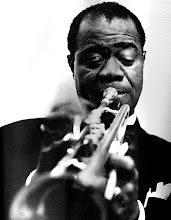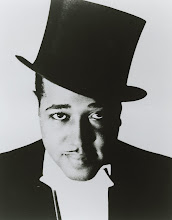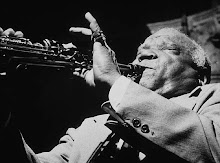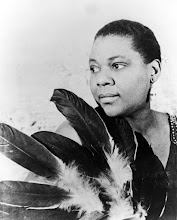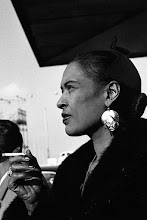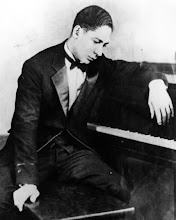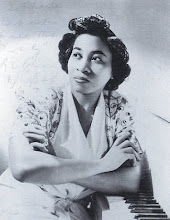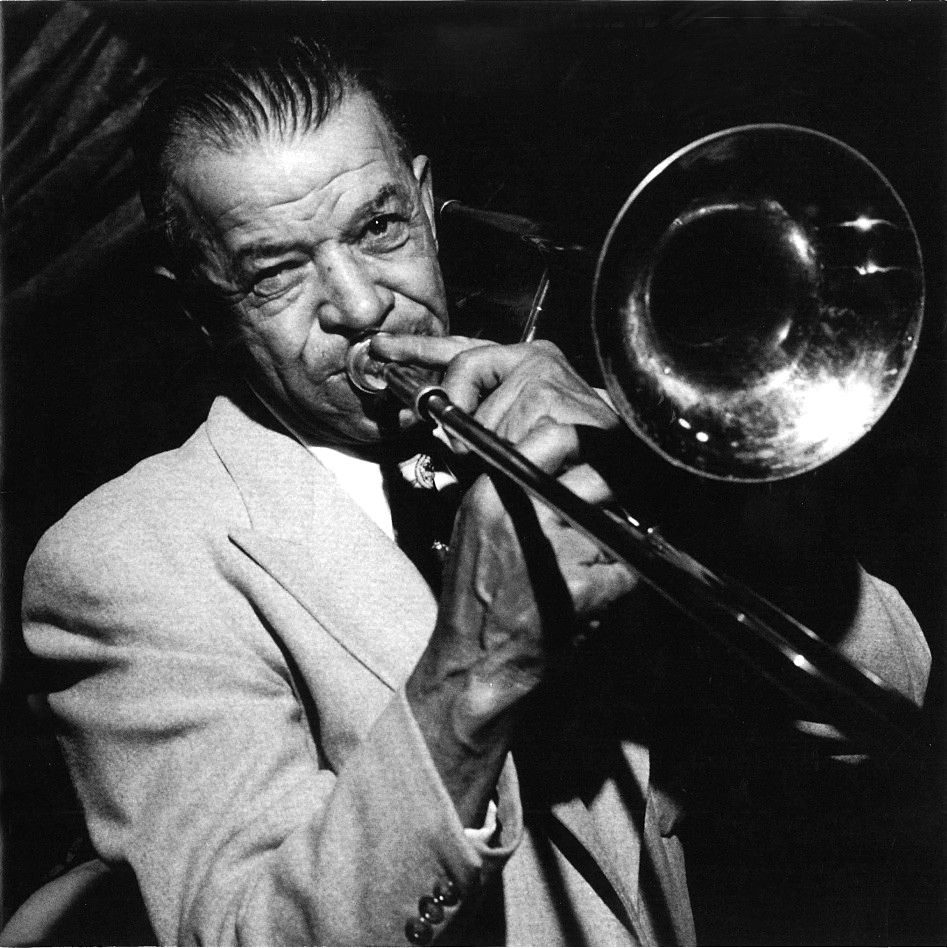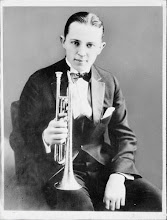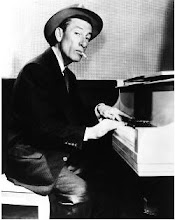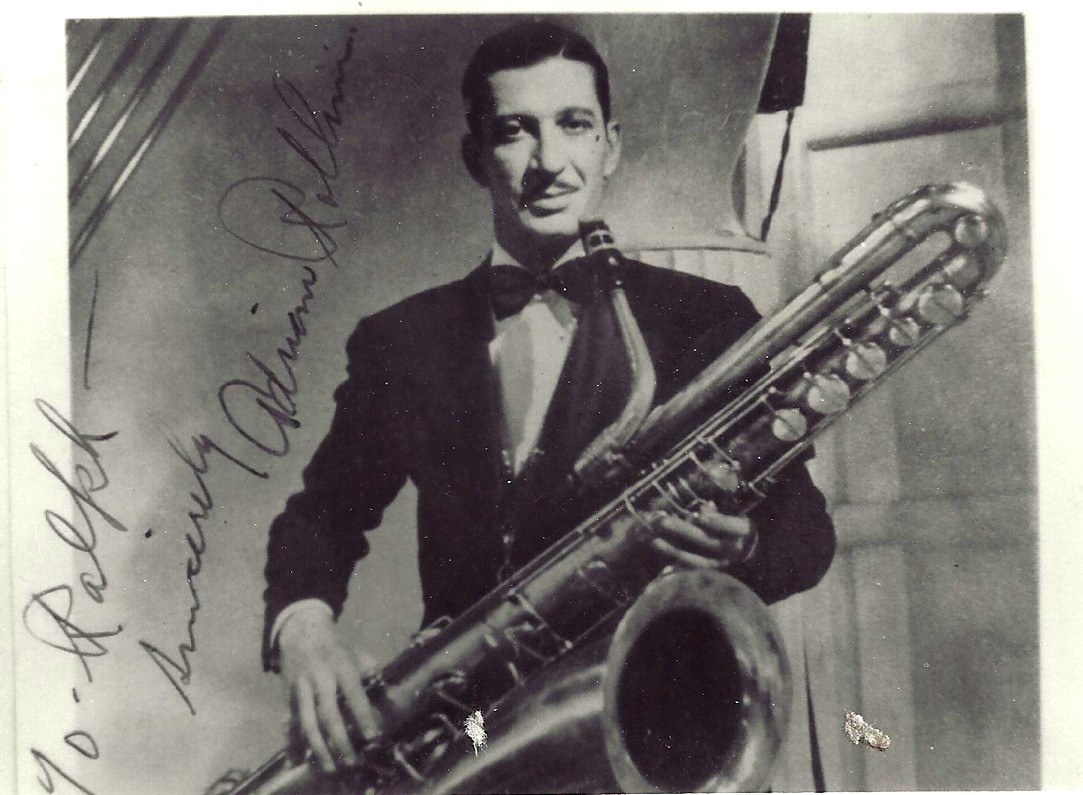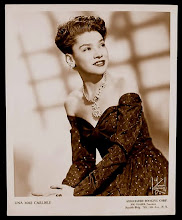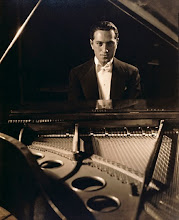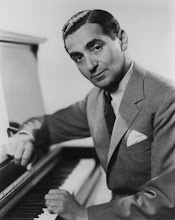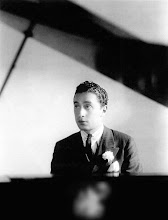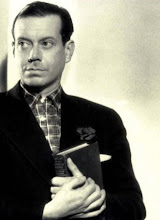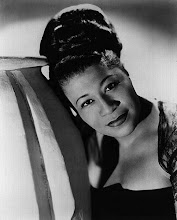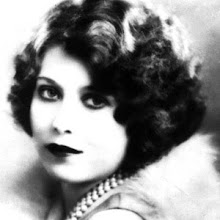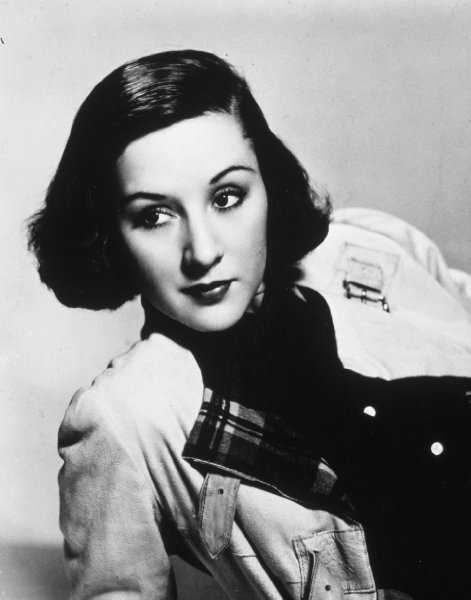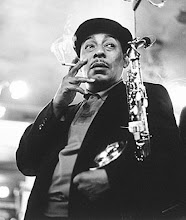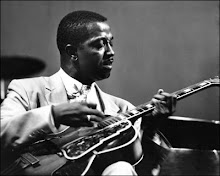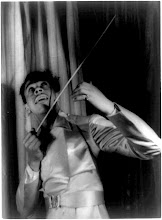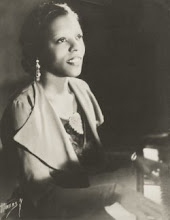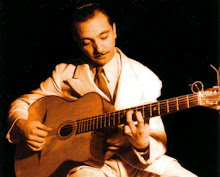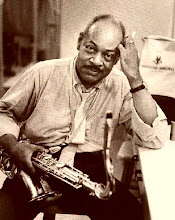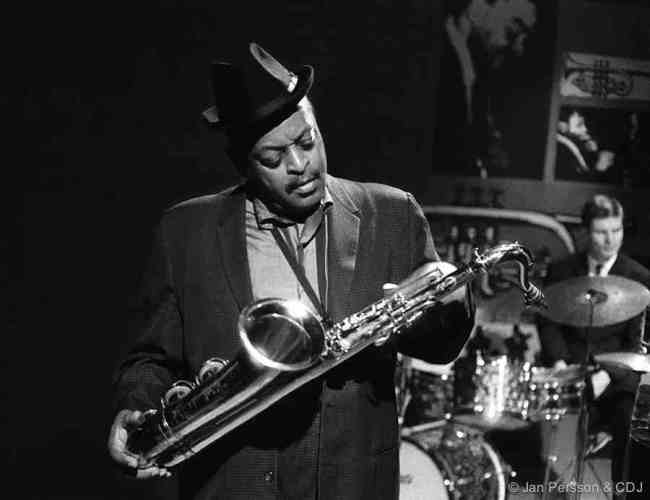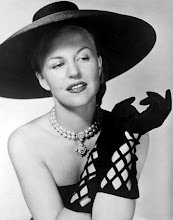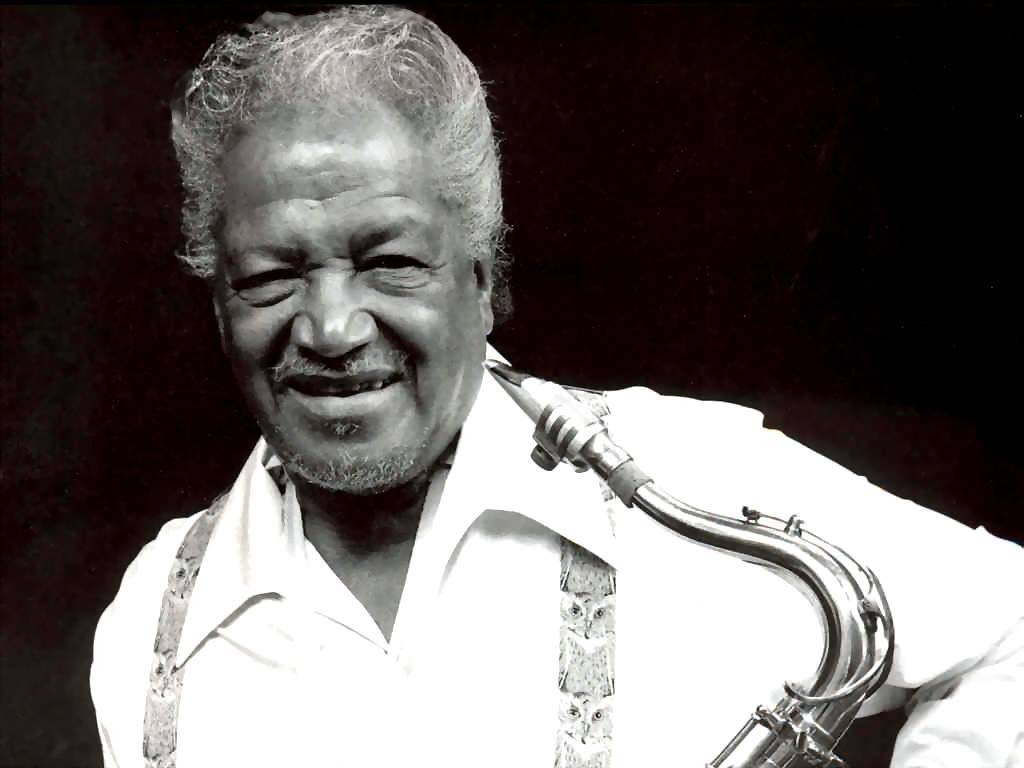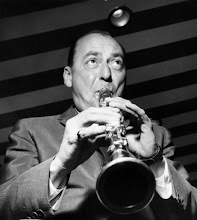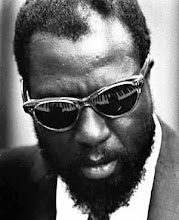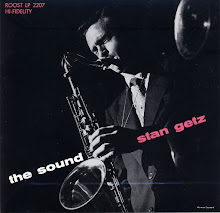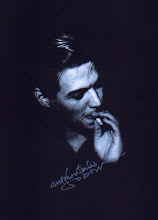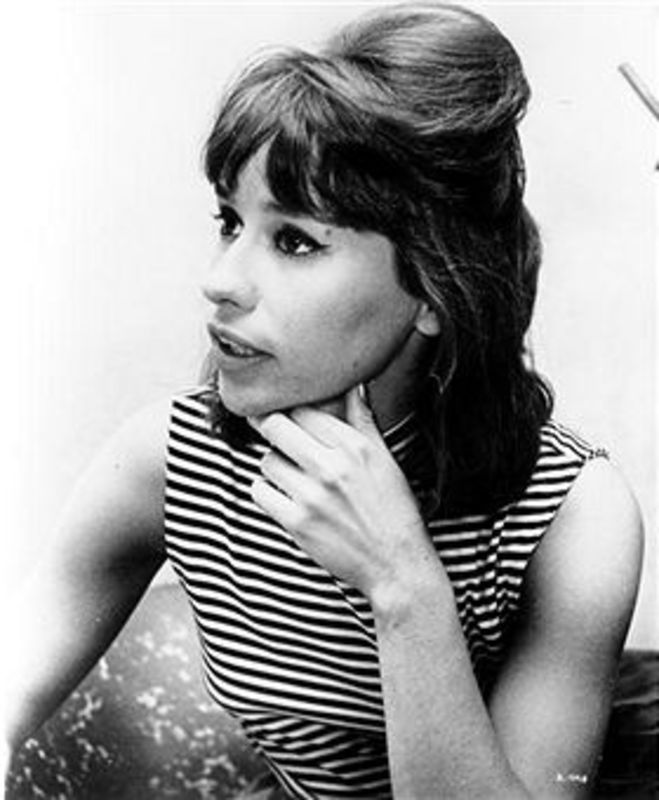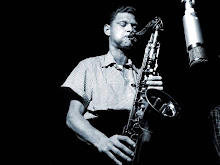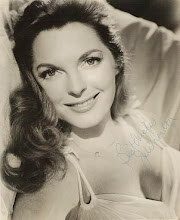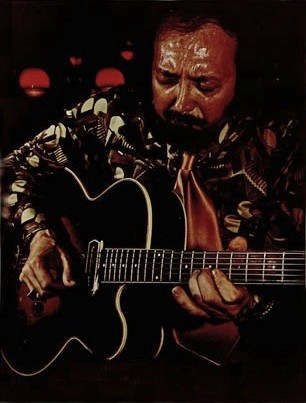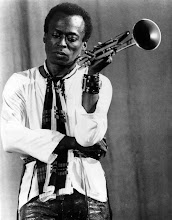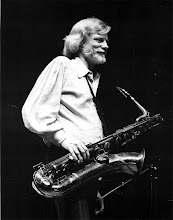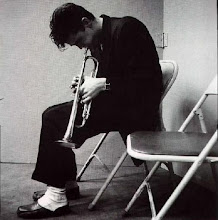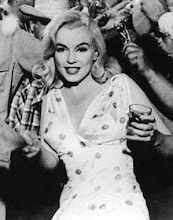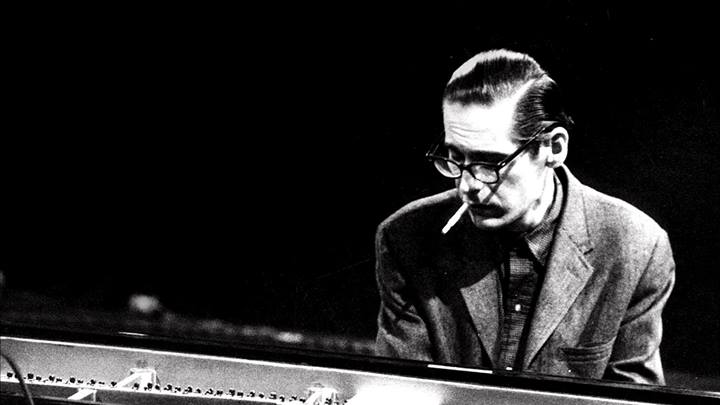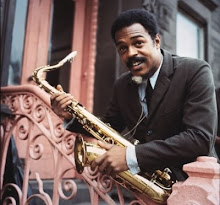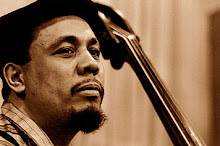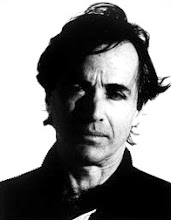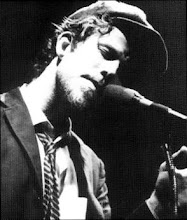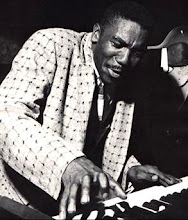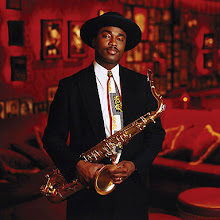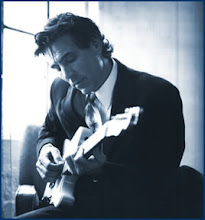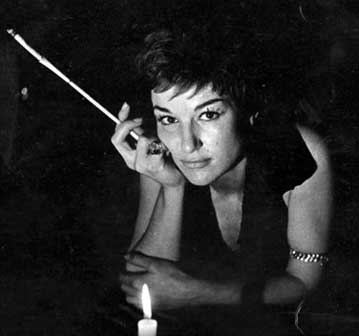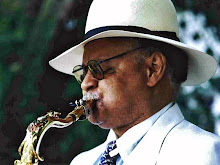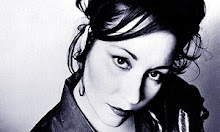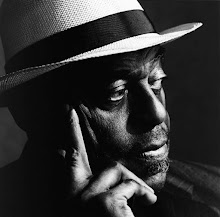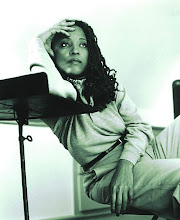What we play is life.
Louis Armstrong
I never had much interest in the piano until I realized that every time I played, a girl would appear on the piano bench to my left and another to my right.
Duke Ellington
I never heard so musical a discord, such sweet thunder.
William Shakespeare
I didn't realize our songs were so good until Ella sang them.
Ira Gershwin
You gotta mean it, and you gotta treat it gentle.
Sidney Bechet on playing music
The memory of things gone is important to a jazz musician. Things like old folks singing in the moonlight in the back yard on a hot night or something said long ago.
Louis Armstrong
There's a new idea that consists in destroying everything and find what’s shocking and unexpected; whereas jazz must first of all tell a story that anyone can understand.
Thelonious Monk
Jazz music is to be played sweet, soft, plenty rhythm.
Jelly Roll Morton
I think that anybody from the 20th century, up to now, has to be aware that
if it wasn't for Louis Armstrong, we'd all be wearing powdered wigs. I think
that Louis Armstrong loosened the world, helped people to be able to say
"Yeah," and to walk with a little dip in their hip. Before Louis Armstrong,
the world was definitely square, just like Christopher Columbus thought.
Hugh Masekela
As far as playing jazz, no other art form, other than conversation, can give
the satisfaction of spontaneous interaction.
Stan Getz
The only things that the United States has given to the world are
skyscrapers, jazz, and cocktails. That is all. And in Cuba, in our America,
they make much better cocktails.
Federico Garcia Lorca
This is so nice, it must be illegal
Fats Waller
Personally I find jazz most interesting: the rhythms, the way the melodies are handled, the melodies themselves. I have heard of George Gershwin's works and I find them intriguing.
The most captivating part of jazz is its rich and diverting rhythm. ...Jazz is a very rich and vital source of inspiration for modern composers and I am astonished that so few Americans are influenced by it.
Maurice Ravel
I have a letter from a violinist who worked in my first band, a string quartet based jazz band. And he wrote me a letter saying that he had gone through all the conservatories he could think of. And he thought he knew somethin' about music by the time he joined my band.
He said he learned more in the first rehearsal than in all the years he'd been playing violin. Because I was talking about music, not about notes -- not about how you play them -- but where they fit in with the rest of the band. You're playing with other people.
Artie Shaw on Classical vs. Jazz music
Thou shalt not bore.
Billy Wilder
There are four qualities essential to a great jazzman. They are taste,
courage, individuality, and irreverence. These are the qualities I want to
retain in my music.
Stan Getz
If it has more than three chords, it's jazz.
Lou Reed
It occurred to me by intuition, and music was the driving force behind that
intuition. My discovery was the result of musical perception. (When asked
about the theory of relativity)
Albert Einstein
After silence, that which comes nearest to expressing the inexpressible, is
music.
Aldous Huxley
Anyone can learn what Louis Armstrong knows about music in a few weeks.
Nobody could learn to play like him in a thousand years.
Benny Green
Nothing is out of the question for me. Im always thinking about creating. My
future starts when I wake up in the morning and see the light. Then I'm
grateful.
Miles Davis
Over all, I think the main thing a musician would like to do is give a
picture to the listener of the many wonderful things that he knows of and
senses in the universe.
John Coltrane
When I first heard jazz, the music had all the harmonic complexity, richness and level of musicianship that classical music had but it also had a few elements that classical music did not have, for instance improvisation, and most importantly, it sounded bad, like it was on the dark side! As a sixteen year old, that was entirely compelling. It had all the right ingredients! Hearing singers such as Sarah Vaughan, Billie Holiday, Anita O’Day and Betty Carter, I was shocked by how personal and intimate their statements were. They seemed so completely in control of their art form. I dove into the music.
Holly Cole
...it bugs me when people try to analyze jazz as an intellectual theorem.
It's not. It's feeling.
Bill Evans
I hate straight singing. I have to change a tune to my own way of doing it.
That's all I know.
Billie Holiday
One thing I like about jazz, kid, is that I don't know what's going to
happen next. Do you?
Bix Beiderbecke
Finally Beiderbecke took out a silver cornet. He put it to his lips and blew a phrase. The sound came out like a girl saying 'yes'.
Eddie Condon on Bix Beiderbecke
This is positively not an album to play while you do a doctorate thesis on
"Bergson, Webern and Charles the Vicious, Paradox or Ambiguity?"
Bob Brookmeyer
Jazz music is an intensified feeling of nonchalance.
Francoise Sagan
Jazz is the music of the body.
Anais Nin
The whole thing of being in music is not to control it but to be swept away
by it. If you're swept away by it you can't wait to do it again and the same
magical moments always come.
Bobby Hutcherson
Somehow I suspect that if Shakespeare were
alive today, he might be a jazz fan himself.
Duke Ellington
Music is your own experience, your thoughts, your wisdom. If you don't live
it, it won't come out of your horn.
Charlie Parker
Men have died for this music. You can't get more serious than that.
Dizzy Gillespie
It's like an act of murder - you play with intent to commit something.
Duke Ellington
The music business is a cruel and shallow money trench, a long plastic hallway where thieves and pimps run free, and good men die like dogs.
There's also a negative side.
Hunter S. Thompson
It is only by introducing the young to great literature, drama and music,
and to the excitement of great science that we open to them the
possibilities that lie within the human spirit - enable them to see visions
and dream dreams.
Eric Anderson
If I'd known I was going to live to be a hundred I'd have taken much better
care of myself.
Eubie Blake
Without music, life would be a mistake.
Friedrich Nietzsche
Jazz is rhythm and meaning.
Henri Matisse
Technically, I'm not a guitar player, all I play is truth and emotion.
Jimi Hendrix
If you're going to make a mistake, make it loud so everybody else sounds
wrong.
Joe Venuti
It's easy to play any musical instrument: all you have to do is touch the
right key at the right time and the instrument will play itself.
Johann Sebastian Bach
Music is the shorthand of emotion. Emotions, which let themselves be
described in words with such difficulty, are directly conveyed to man in
music, and in that is its power and significance.
Leo Tolstoy
Jazz is not dead - it just smells funny.
Frank Zappa
Music is a higher revelation than philosophy.
Ludwig van Beethoven
There is no virtuosity or volume for its own sake, no selfindulgence; just a superlative artist who still believes in the power of beauty instead of finding beauty in power.
Leonard Feather on Stan Getz
I'll play it first and tell you what it is later.
Miles Davis
Jazz is like wine. When it is new, it is only for the experts, but when it gets older, everybody wants it.
Steve Lacy
Jazz really does try to include everything. It's always been popular music. But the wonderful thing about jazz is its willingness to take chances.
Madeleine Peyroux
I think I had it in the back of my mind that I wanted to sound like a dry martini.
Paul Desmond
Creativity is not simply a property of exceptional people but an exceptional property of all people.
Ron Carter
Music is a moral law. It gives a soul to the universe, wings to the mind,
flight to the imagination, a charm to sadness and life to everything.
Plato
If music be the food of love, play on -
William Shakespeare
It don't mean a thing if it ain't got that swing.
Duke Ellington









